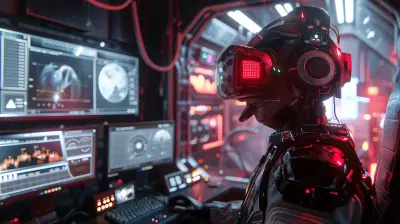Player Identity and Role-Playing: Crafting a Story Around the Self
19 July 2025
Have you ever sat back after a long gaming session, stared at your avatar, and asked yourself, "Why did I make that decision?" You're not alone. Whether you're a stealthy rogue in Skyrim, a paragon hero in Mass Effect, or a chaotic warlock in D&D, there’s something deeper stirring underneath all that loot collecting and boss battling.
Let’s peel back the layers of pixels, armor sets, and dialogue trees to reveal a more complex narrative—one about you. Yeah, you. This is about player identity, role-playing, and how games help us craft a personal story that often says more about us than we realize.
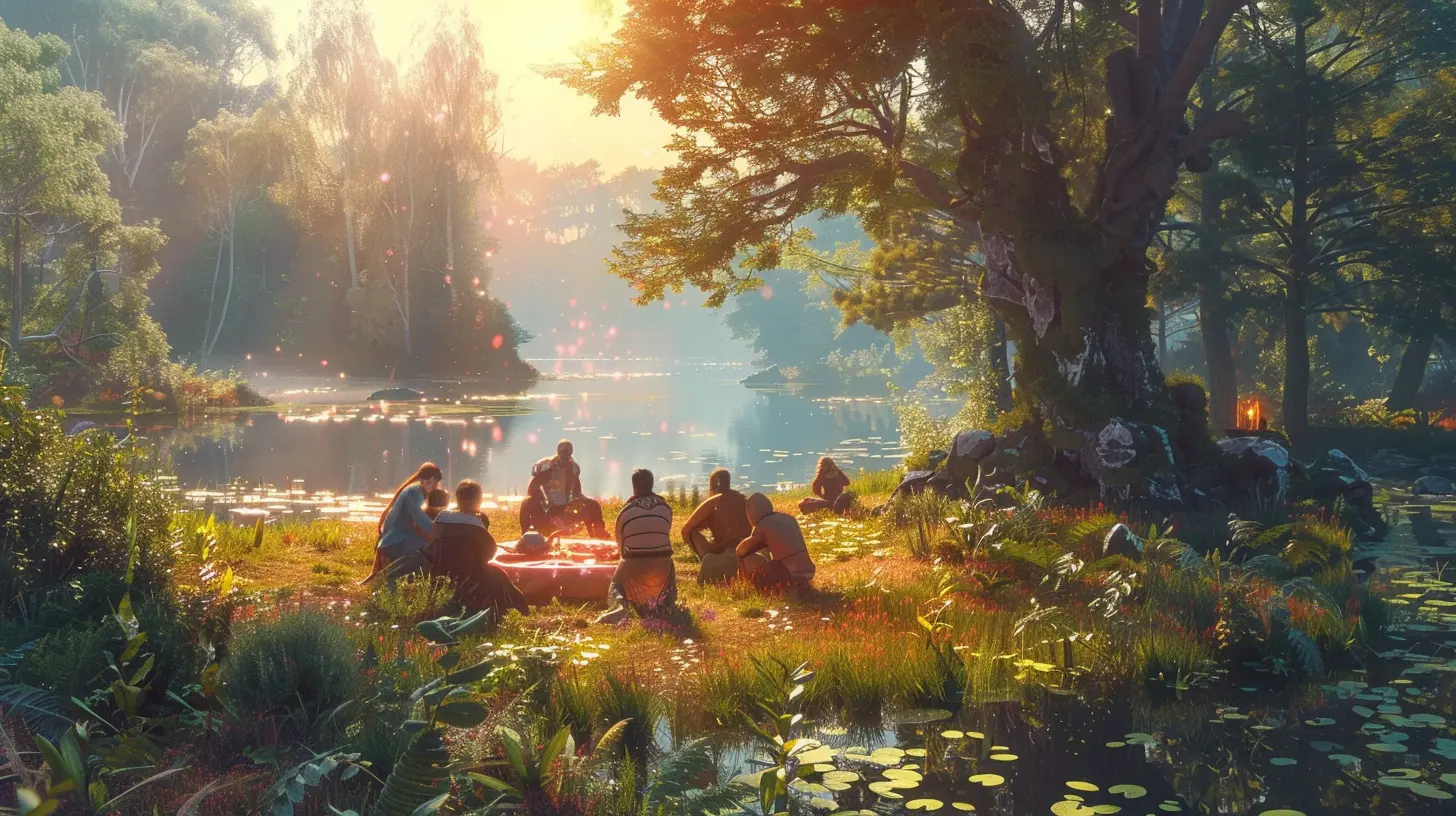
What Is Player Identity, Really?
At its core, player identity is the "you" that shows up in the game world. Sounds simple, right? But hold on—it's more than just picking a username or choosing whether your character wears a cape or a crown.It’s the intersection where what you do in-game meets who you are out here in the real world. It’s shaped by your choices: will you save the village or burn it down? Help the lost traveler or rob him blind? These decisions craft a digital fingerprint that mirrors your real-life values, beliefs, and curiosities.
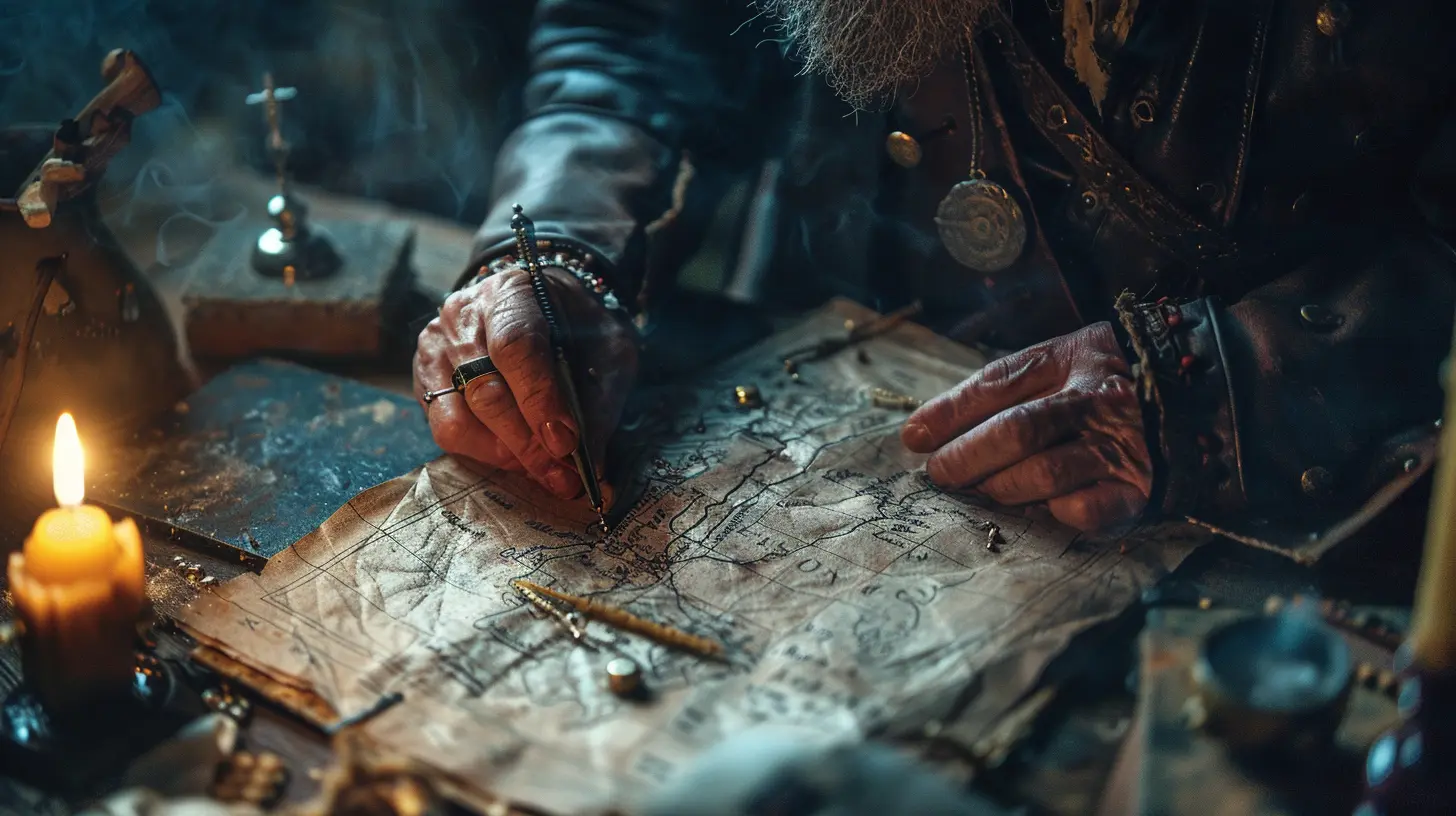
Role-Playing: Your Inner Storyteller Awakens
Role-playing isn’t just reserved for tabletop veterans with character sheets and funny voices (though that’s awesome too). Every time you make a decision in an RPG—whether it's aligning with a faction, customizing your look, or choosing your dialogue options—you’re role-playing.You're not just playing a role, you're writing one.
In these moments, you’re the screenwriter, the director, and the actor all rolled into one. The game provides the stage, but you bring the soul.
Narrative Agency: The Power of Choice
Role-playing games (RPGs) thrive on narrative agency—that fancy term that basically means “you’re in control of your story.” In games like The Witcher or Dragon Age, every choice carves the path of your unique adventure.Unlike watching a movie or reading a book, here you decide what happens next. That’s not just powerful—it’s addictive. It's also where identity starts to get real messy. Or beautiful. Sometimes both.
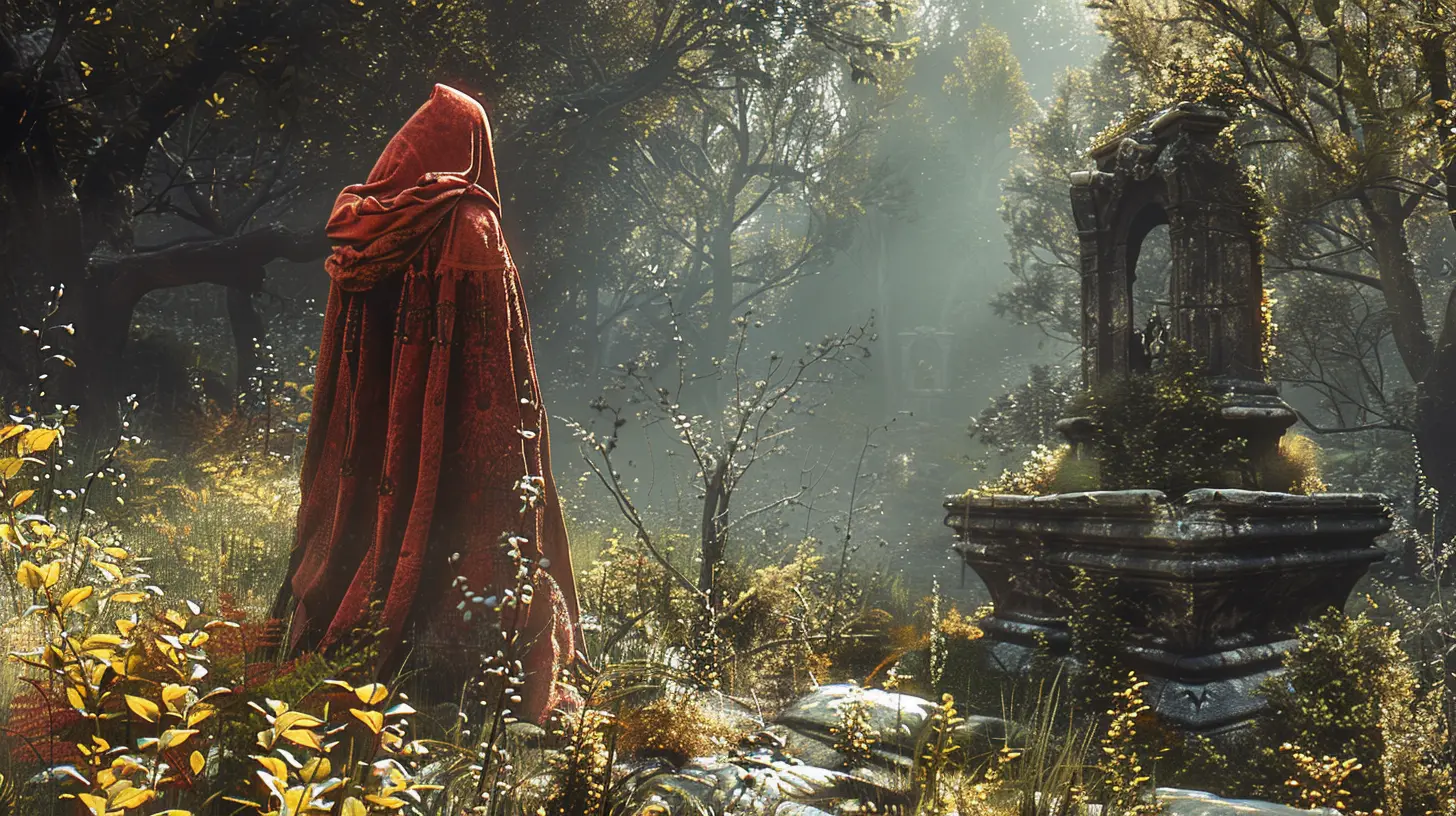
Why We Play the Way We Do
Ever wonder why you always end up playing the noble paladin, even when you swear you're going full dark side next run? Or why you love stealth builds despite the chaos of an open battlefield?That’s where psychology comes into play.
The Projection Principle
In many ways, we project elements of ourselves into our characters. Some of us create idealized versions—who we wish we could be. Others use games as a mirror to reflect who they already are.And then there are those who choose to explore the shadow self. The side that doesn’t get much daylight. Yeah, playing the villain can be therapeutic.
It’s not just escapism. It’s a sandbox for self-exploration.
Escapism or Self-Discovery?
Let’s get something straight—there’s nothing wrong with escaping. In fact, it’s one of gaming's biggest draws. When life’s too heavy, stepping into a world where you can fly or cast spells sounds like a pretty sweet deal.But that escape often leads to discovery. You start doing things in-game that surprise you. You take risks. You make compassionate choices. Or frightening ones. And suddenly, you’re learning things about yourself you didn’t expect.
It’s like those games crack open a door to a version of you that’s always been waiting to be let out.
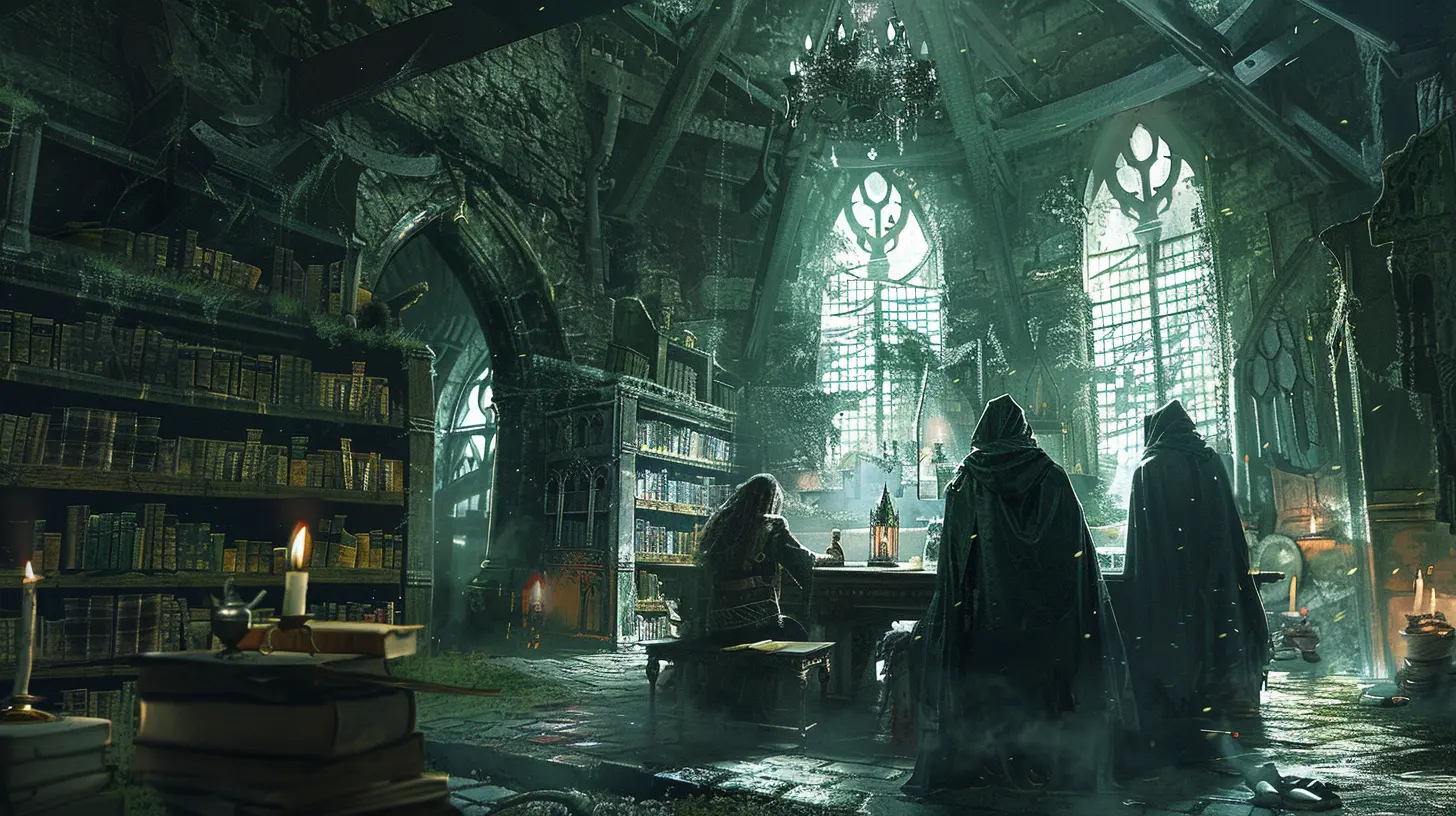
Crafting Identity Through Customization
Character creation is more than slider bars and color palettes—though let's admit, we all spend way too long there.The Art of Avatar Creation
Your avatar is your representative in this strange new world. Whether you’re slaying dragons or hacking into corporate servers, your character is your visual and interactive identity.So when you choose those scars, tattoos, voice lines, or body type, you’re actually saying something. Maybe it’s a reflection of your real self. Maybe it’s a version of you that’s braver, cooler, or just taller.
But it’s always you—just reimagined.
Gender and Expression in Games
Let’s dive into something a bit deeper: identity expression.For many players, video games are one of the first safe spaces where they can experiment with gender, roles, or identities they might not feel comfortable exploring in real life. Choosing a different gender, race, or role in the game isn’t "just for fun"—it can be empowering, freeing, and even healing.
Game developers are catching on, too. More inclusive customization options and narratives allow players to feel seen and represented. And that’s a game-changer—pun fully intended.
The Role of Game Mechanics in Shaping Identity
Let’s not forget the structure of the game itself influences how you play.Games like Dark Souls force you to learn through failure. That pushes you to become patient, resilient, maybe even a bit calculating. On the flip side, loot-heavy games like Diablo reward relentless grinding and strategic optimization.
You become the type of player that thrives under the rules set by the world. Your identity as a gamer shifts depending on the game—and that’s fascinating.
Morality Systems: Choose Your Own Ethics
Games with morality mechanics (think Mass Effect, Fable, or Fallout) straight-up test your ethics. Do you save the innocent, punish the guilty, or play both sides?Over time, these systems begin to decode your digital ethics. Sure, some people min-max their choices for the best gear or ending. But others? They’re following an inner compass.
And the best part? Most games don’t punish you for being you. They just evolve alongside your choices.
Multiplayer and Identity in Social Spaces
The solo RPG experience is one thing—but what about when you’re role-playing with others?MMOs: Identity on the Grand Stage
In MMORPGs like Final Fantasy XIV or World of Warcraft, your character isn’t just known to you—they represent you in an entire community.You become part of guilds, raids, and forums. Maybe you’re known for your healing skills. Or your incredible fashion sense. Or even your in-character tavern role-plays on Friday nights.
This social layer adds complexity. Suddenly, your choices and behavior affect (and are affected by) others. Your identity extends beyond your screen.
Streamers and Persona-Play
Twitch changed the game—literally. Now, player identity can become an actual brand. Some streamers play heightened versions of themselves. Others create full-blown personas.In these performances, identity becomes layered. There’s the real person, the gamer, and the character—all overlapping in unpredictable and creative ways.
It’s like performance art, digital identity, and improv comedy all blended into some wild, chaotic brew.
The Blurred Line Between Player and Character
After hours—sometimes hundreds of hours—spent with a character, something weird happens. The line between you and them starts to blur.You start thinking like them. Anticipating their reactions. Feeling their triumphs and failures.
And when the credits roll? It feels like saying goodbye to a piece of yourself.
That’s the incredible, mysterious power of role-playing: we step into another’s shoes, but somehow, we walk away knowing ourselves a little better.
Identity in Games Is Always Evolving
Games are no longer static. They're living, breathing experiences that adapt to player behavior and feedback. Interactive storytelling is reaching new levels of complexity. AI-driven narratives may soon tailor entire quests to your personal playstyle.What does this mean for the future?
It means the selves we discover in games will continue to grow, shift, and surprise us. It means we’ll keep crafting stories around the self—stories that are fluid, messy, and remarkably human.
And maybe that’s the point.
Final Thoughts: Your Story, Your Rules
Look, there’s no right or wrong way to build your story in a game. Whether you're the hero, the antihero, or someone who just really loves fishing side quests, your choices matter. They leave imprints—on the world, your save files, and maybe even on you.So next time you boot up a game, don’t just ask what you want your character to do. Ask yourself: what story am I telling? And why?
Because at the end of the day, every quest, every dialogue choice, every weapon loadout—it’s all part of something bigger.
You're not just playing the game. You're writing yourself into it.
all images in this post were generated using AI tools
Category:
Interactive StorytellingAuthor:

Lucy Ross
Discussion
rate this article
2 comments
Nicholas McRae
This article brilliantly highlights how role-playing games empower players to explore and express their identities. By crafting personal narratives, players connect deeply with their avatars, enriching gameplay. It’s not just about the game; it’s about self-discovery and storytelling, making every session a transformative experience. Exceptional insights!
December 26, 2025 at 4:55 PM

Lucy Ross
Thank you for your thoughtful comment! I'm glad you resonated with the exploration of identity and storytelling in RPGs.
Noelle Newman
Who knew exploring your inner hero could be so much fun? Crafting a story around yourself in games is like an epic selfie with dragons and quests!
July 25, 2025 at 4:24 AM

Lucy Ross
Absolutely! Games offer a unique way to express our inner selves, making the journey of self-discovery both exciting and immersive.


